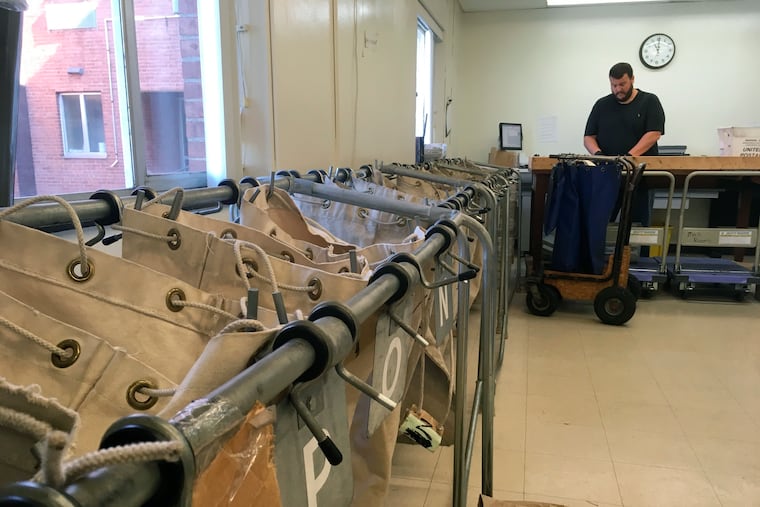Pennsylvania prisons’ unprecedented mail policy will be tested in federal court this week
Lawyers including Pennsylvania-based federal defenders say they have stopped sending mail for fear of confidentiality violations.

In September, Pennsylvania’s Department of Corrections responded to what it said was a scourge of drug smuggling with a series of stringent security measures, some of them with no precedent in a state prison system.
The first significant legal test of that initiative begins Tuesday in Harrisburg with the opening of federal hearings on a petition for a preliminary injunction filed by advocates who say the department’s new policy on legal mail infringes on their constitutionally protected free speech and violates attorney-client privilege.
Under the revised policy, incoming mail to prisoners is diverted to a contractor in Florida that scans and digitally forwards it to be printed and distributed at each prison. One exception is confidential legal mail, which lawyers are permitted to mail directly to state prisons, where the documents are photocopied, and the originals are confiscated and destroyed.
Lawyers including Pennsylvania-based federal defenders say they have stopped sending mail at all; they said it would be unethical to do so given the potential confidentiality violations. At the hearing, advocates will seek to show the extent to which the policy interferes with lawyers’ ability to represent their clients and the Department of Corrections’ “lack of due diligence before implementing this process.”
“The limited, if not nonexistent, extent to which legal mail is used to introduce drugs into the prison — that’s something that will be part of the testimony,” said Alexandra Morgan-Kurtz, a lawyer with the Pennsylvania Institutional Law Project, which brought the federal case along with the ACLU of Pennsylvania, Abolitionist Law Center, and Amistad Law Project.
The docket leading up to the hearing catalogs a months-long battle over whether to make public what went into the Department of Corrections decision to enter a series of no-bid emergency contracts for mail processing services and equipment, and how that process has played out.
The Department of Corrections reported that, by early indications, its security measures were effective in reducing avenues for paper soaked in K2, the synthetic cannabinoid, which is difficult to detect and can cause erratic, even violent behavior. The number of drug finds are down, but some of the measures the DOC tracks, such as the percentage of inmates who test positive in random drug tests and the number of inmate overdoses, continue to fluctuate.
Amy Worden, a spokesperson for the department, in January said that an inmate’s drug overdose death and the sickening of 60 staff from drug exposure had necessitated the security overhaul.
“That is why the DOC took the unprecedented step of changing its policies to address drug smuggling to keep prisons safe," she said.
Experts in medical toxicology, as well as emergency department heads at medical centers where the prison staff were treated, have cast doubt on the source of the sickness — indicating that an anxiety reaction, or “mass psychogenic illness,” was a more likely source of the symptoms than incidental contact with drugs.
Meanwhile, inmates who have ongoing legal cases, ranging from civil-rights lawsuits against the prison to state and federal petitions claiming wrongful convictions, say the new policy is drastically impeding their access to the courts. Because many prisoners are housed hours away from their lawyers, in-person visits are often impractical. Access to confidential phone calls is limited and inconsistent, according to attorneys.
One man who will testify, Kerry Marshall, has three cases pending: a civil lawsuit regarding religious rights (a Nation of Islam practitioner, he is seeking separate religious services and the right to wear a fez), a federal appeal of his conviction, and a third case in state court.
“The policy has interfered with his ability to have substantive conversations with his attorneys on all of his cases,” said Morgan-Kurtz, who is representing Marshall on the religious-rights case. In that case, mediation is ongoing but, she said, progress has been stymied because she believes she can’t securely use the mail to communicate about a proposed settlement, and because she has been unable to arrange sufficient phone time through prison administrators to discuss how to proceed. “The alternatives available to communicate with clients in the DOC really aren’t reasonable alternatives at all."